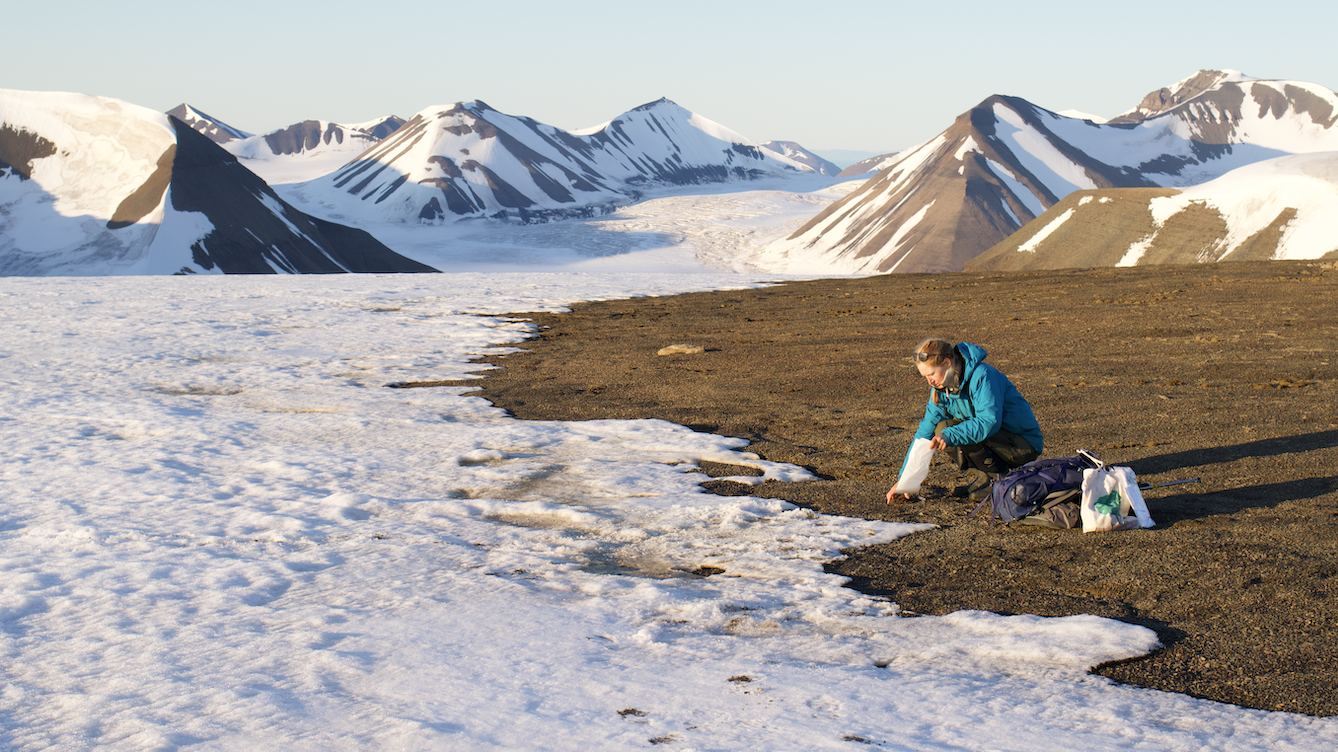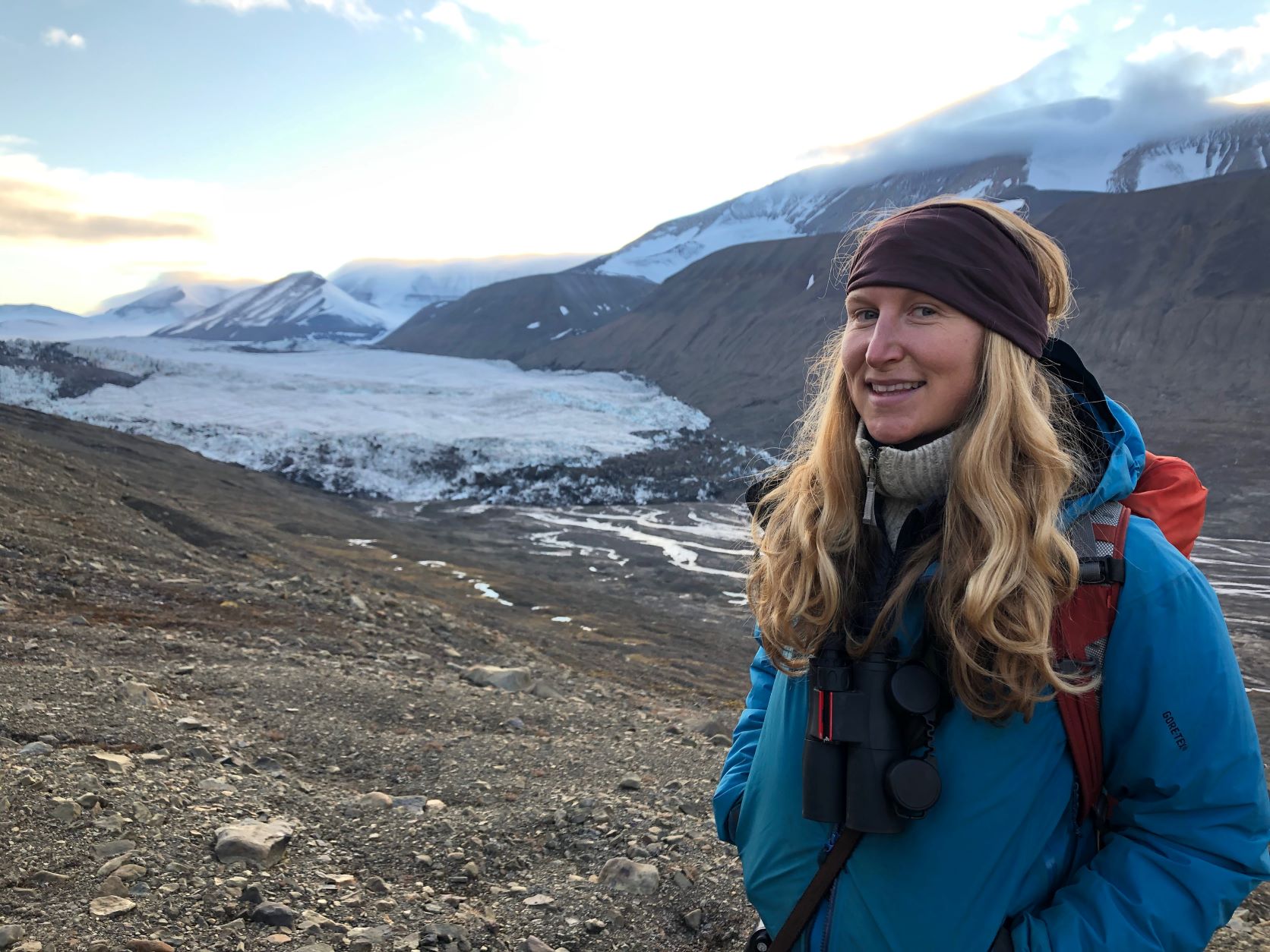
Submitted by Dr C.M. Martin-Jones on Thu, 04/11/2021 - 14:36
A climate scientist from Cambridge Earth Sciences will feature in a panel discussion at the Arctic Basecamp — an organization committed to bringing the message of Arctic risk to global leaders —during the COP26 summit in Glasgow.
The panel discussion, on ‘Climate Risk and Tipping Points in the Polar Regions’, will take place on 8th November and is organised by Cambridge Zero, in collaboration with the COP26 Universities Network.
Speakers include Gabrielle Kleber, a PhD student in our Department studying methane-rich groundwater springs in the Arctic, Michael Bravo of Cambridge’s Scott Polar Research Institute, Louise Sime, from the British Antarctic Survey and Tamsin Edwards of King’s College London. The panel will be chaired by Erik Mackie of Cambridge Zero.
The polar regions are particularly fragile and vulnerable to climate risks, including methane release from retreating glaciers, with several potential critical climatic thresholds, or tipping points, of concern.
The panel discussion will cover the latest scientific evidence on climate risks due to sea ice loss, sea level rise and methane release, together with their impacts on ecosystems and Arctic communities.
“We can almost consider the Arctic like the canary in the coal mine: its already warming twice as fast as the global average, but Svalbard — the area I study — is warming four times faster,” said Kleber. Some scientists consider the region to be a portal into the possible future outcomes of climate change.
Gabrielle has spent the last two years tracing more than a hundred different glaciers in Svalbard as they retreat; leaving behind bubbling springs thought to release methane from the once frozen ground.
Methane is a powerful greenhouse gas — trapping and re-directing the Sun’s heat back to Earth — but springs like this are particularly understudied. It is thought that they could contribute to a dangerous feedback cycle, where thawing ice may lead to further warming as methane is released.
Methane seepage from thawing glaciers is one of a number of ‘positive feedbacks’ that are not currently included in our projections of climate change.
“Many people don’t realise how the Arctic is really key in regulating our climate as a whole – in loosing these key regulatory masses, like ice and permafrost, we are really risking amplifying climate change in the future.”
Other positive feedbacks include the loss of sea ice which would otherwise reflect back the sun’s rays.
Gabrielle also spent this summer living in a hut at the margins of a remote glacier in Svalbard, recording the daily meltwater discharge and taking measurements of the gas seeps. Her aim is to be able to better quantify levels of methane release across the region.
Even though Gabrielle has witnessed the impacts of climate change on the Arctic first hand, she remains optimistic, “I think we all acknowledge that progress could be faster. But, with events like COP26, the public are becoming much more aware that this is a massive global issue, which needs to be urgently addressed. Five years ago, if I had told my family that I would be speaking at COP26, they would have had no idea what it was. As the public becomes more engaged in the issue, it puts more pressure on policy makers to take action. ”
She hopes to inspire others to get into climate research. After initially starting out as engineer in the automotive industry, Gabrielle went back to university study follow her interest in climate science, “My experience has shown me it’s never too late to change career paths — the most important thing is to follow your ambition.”
You can watch the discussions online by registering in advance here.

